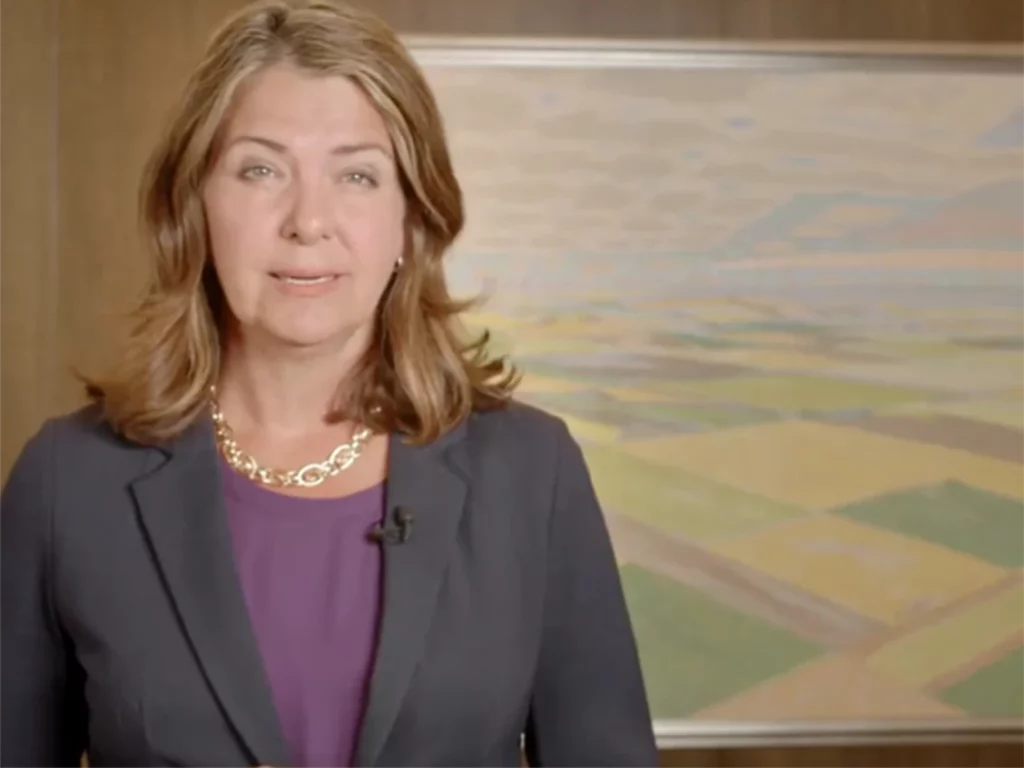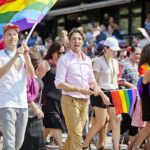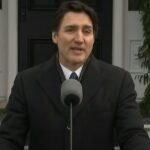Blog Post
Canadians Finally Fight Back Against the Trans Agenda
For the better part of a decade, Canada remained one of the only Western countries where gender ideology remained entirely unquestioned, promoted as state dogma by the Trudeau government, and passively accepted by conservative politicians skittish about social issues. Protests against radical sex education in public schools had occasionally flared but promptly fizzled. Opposition to any aspect of the LGBT agenda was condemned by progressives as fundamentally ‘unCanadian’; the silent majority of Canadians who opposed many of these changes were voiceless. Last June, that began to change.
New Brunswick Premier Blaine Higgs announced that going forward, children under 16 seeking to change their gender at school by switching names and pronouns would first need to get their parents’ permission. Many Canadians had been unaware that over the past several years, it has become standard policy in the public school system to hide such information from parents by default, even though parental permission is required for matters as trivial as dispensing Tylenol. LGBT activists accused Higgs of violating LGBT ‘human rights,’ but Higgs refused to back down. Polling highlighted the popularity of the policy. As it turns out, claiming that Canadian parents pose a danger to their kids is not politically persuasive.
Higgs’ move attracted the attention of other premiers, and on August 22, Saskatchewan announced an almost identical policy mandating that parental consent must be acquired before students are ‘socially transitioned’ before the age of 16. Again, the political allies of the LGBT movement—including Saskatchewan’s ‘Advocate for Children and Youth,’ Lisa Broda—claimed that involving Canadian parents in life-changing decisions about their children is dangerous. Premier Scott Moe, following Higgs’ lead, defended the policy, highlighting a poll that proved broad public support:
A new poll from [the] Angus Reid Institute shows strong support in Saskatchewan and across Canada for Parental Inclusion and Consent in education with 86% in Saskatchewan supporting some level of notification for parents when children want to change their gender identity in school. Just 10% agree with the NDP position that parents should not be informed.
LGBT groups launched lawsuits to stop the parental rights policies, and the Saskatchewan Court of King’s Bench granted an injunction halting the implementation of the policy until its constitutionality could be fully reviewed. In a rare move, Moe recalled the legislature and overrode the injunction with the ‘notwithstanding clause,’ Section 33 of the Canadian Charter of Rights and Freedoms, a constitutional tool allowing federal, provincial, and territorial legislatures to prevent judicial review for up to five years, at which point it can be re-enacted. Moe was confident enough in both the rightness and popularity of his policy to stake an enormous amount of political capital on the issue and utilize a tool that most premiers almost never use.
Manitoba Premier Heather Stefanson was next, promising to make parental rights part of her upcoming election (which her party subsequently lost to the NDP)—an Angus Reid Survey indicated that 76% of Manitobans believe that parents should be informed if a child assumes a new ‘gender identity’ at school. Ontario’s education minister Stephen Lecce hosted a press conference on August 28, announcing that it is the view of the Ford government that “parents must be fully involved and fully aware of what’s happening in the life of their children.” Overnight, ‘parental rights’ went from a political no-go zone to a popular campaign point—and all it took was one premier having the guts to make the move.
For several months, it looked as if Alberta—where socially conservative premier Jason Kenney was replaced by libertarian Danielle Smith, who is self-professedly pro-LGBT—would buck the new trend. Then, on January 31, Smith announced a raft of new policies going substantially further than any other premier. From the Alberta government’s website:
- All gender reassignment surgeries for minors aged 17 and under will be prohibited.
- The use of puberty blockers and hormone therapies for the purpose of gender reassignment or affirmation will not be permitted for children aged 15 and under, except for those who have already commenced treatment.
- Mature teens, aged 16 and 17, may only choose to commence puberty blockers and hormone therapies for gender reassignment and affirmation purposes with parental, physician, and psychologist approval.
- Parents must be notified and opt in to any instance when a teacher provides formal instruction on subject matter involving gender identity, sexual orientation, or human sexuality.
- All third-party resource materials or presentations related to gender identity, sexual orientation or human sexuality available in Alberta classrooms must be pre-approved by the Ministry of Education to ensure they are age-appropriate.
- Parents must consent for their child aged 15 and under to alter their name or pronouns used by school teachers, administration, and other educational staff.
- Parents must be notified for their child aged 16 or 17 to alter their name or pronouns used by school teachers, administration, and other educational staff.
The LGBT movement and their progressive political allies promptly went nuts. The relentless media campaign from state-funded outlets published a rolling barrage of coverage insisting that these policies would result in ‘trans suicides,’ quoting debunked junk studies and insisting that Higgs, Moe, and Smith were obviously MAGA troglodytes importing an American culture war—a line of attack that, incidentally, is Prime Minister Justin Trudeau’s entire re-election strategy. This despite the fact that Smith’s policies are in line with the medical policy changes in European countries like Norway, Sweden, and Finland—hardly bastions of right-wing sentiment. Canada’s progressive politicians prefer an alternative reality.
Political scientist Dave Snow analyzed the coverage of Saskatchewan’s policy by the CBC, Canada’s taxpayer-funded state broadcaster, and found that headlines were leading and biased, with 37% of them containing “attributed criticism” and not a single one of 38 articles containing “attributed praise of the policy.” So-called ‘experts’ were handpicked to criticize parental rights. Snow’s conclusion: “The CBC prioritizes allyship over objectivity.” The Toronto Star was even less subtle, publishing an op-ed titled “It’s a privilege, not a right, to know your kid’s gender identity.” The CBC even published an explainer titled “Where did the term ‘parental rights’ come from?” in which they explained that “Those who are critical of the term say it’s a misnomer that excludes LGBTQ parents or parents of LGBTQ children, and implies that parental rights take precedence over children’s rights.”
The political backlash has been immense and predictable. Trudeau promptly came out and repeated the same tired narrative about trans kids being at risk of suicide from parental rights policies and bans on puberty blockers. LGBT activists organized protest rallies in Calgary and Edmonton. The LGBT activist group Egale, which receives hundreds of thousands of dollars in federal government funding, has announced that it will sue the Albertan government to stop the policy. Trudeau’s minister of employment, Randy Boissonnault, implied that the federal government could attempt to withhold healthcare funding from the province if Smith moves forward with her announced policies. Trans activists reiterated their delusional accusation that Canada is perpetrating a “trans genocide.”
Polling taken after the Alberta policies were announced emphasized the support of the Canadian public—nearly half of Canadians supported a blanket ban on transgender surgeries for minors; only 11% agreed that minors should be permitted to undergo sex changes “without the need for parental consent.” As Rick Bell noted in the Calgary Herald: “They’ve done their polling. They feel confident they are reflecting the wishes of a strong majority of Albertans. We are told number-crunching reveals Smith’s plans are very popular among Smith’s UCP voters.” Indeed, it is telling that nearly half of Canadians oppose transgender ‘treatments’ despite a tsunami of disinformation and propaganda on the issue from politicians, the press, and trans activists—that number would likely skyrocket if they knew the truth.
On February 7, federal Conservative Party leader Pierre Poilievre finally declared his position on the issue, initially telling his caucus via internal memo not to comment, affirming during a press scrum that he, too, opposes giving puberty blockers to minors.
READ THE REST OF THIS COLUMN HERE









Yup, a few protests and one premier standing up for parents’ rights caused a cascade effect. Normally risk-averse «fiscally conservative but socially liberal» politicians saw where the puck was going and joined the silent majority of Canadians. But we still have to actually win the next batch of elections for any lasting change.